Sax man extraordinaire Jonny Viau is always in demand. It took four years to get this interview, and before I could ask a single question, his phone goes off. The ringtone is a wailing harmonica solo; just file that away for later in our conversation.
For almost forty years Jonny Viau, when not fronting his own band, has been the ‘go-to’ sax man for most of Southern California. He’s recorded with the very best and the list is long; Duke Robillard, Solomon Burke, Kim Wilson, and Clarence ‘Gatemouth’ Brown are just a snapshot. Viau has put in the time and the miles, playing his way around the globe in support of Mitch Woods, Earl King, Candye Kane, the Blues Beatles and who could possibly forget, The Pleasure Barons.
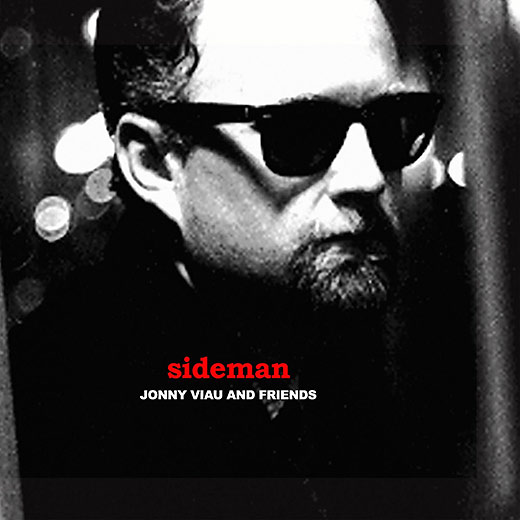 Jonny is the first to admit as a young musician, having the opportunity to open for legendary bluesmen like Muddy Waters and B.B. King “I was definitely star-struck…meeting ALL those guys!” And to this day he continues to credit the influences of Jazz, Rock and R&B icons as diverse as Sun Ra, Frank Zappa, King Curtis and “a lot of Stax stuff, Sam and Dave and Otis Redding.”
Jonny is the first to admit as a young musician, having the opportunity to open for legendary bluesmen like Muddy Waters and B.B. King “I was definitely star-struck…meeting ALL those guys!” And to this day he continues to credit the influences of Jazz, Rock and R&B icons as diverse as Sun Ra, Frank Zappa, King Curtis and “a lot of Stax stuff, Sam and Dave and Otis Redding.”
Our conversation began like most, where’s home? “San Diego, baby!” Jonny says proudly, “I’m a third generation Californian and a native San Diegan.”
Was your family musical? “Well, as a matter-of-fact, yeah!” Jonny smiles. “My grandfather played the violin, the clarinet… and the saw! The musical saw! And my mom would back him up on piano and he’d do shows at the Lion’s Club. He’d have a guy with a giant apple on his head and he’d take a gun and shoot it over his shoulder, with a mirror in one hand and a big spring-loaded worm would come out of the apple, cornball stuff, you know?” (laughing) “I have all of his instruments, though. I have his saw, his violin and his clarinet. He was a pharmacist and his name was John Nemes. He was a big wig up in Artesia, near Long Beach. He had a pharmacy. I remember they sold leeches for black eyes and bruises.” (laughing) “I have a jar they kept the leeches in. We got a couple of those.”
Was saxophone your first instrument? “No, not by far! When the Beatles came out, that’s what started this whole, damn thing. That Ed Sullivan appearance really started a whole wave of people wanting to be musicians. A friend of mine, Mike lived on the same street and we started taking guitar lessons in Escondido at the same time. I was probably seven years old then and that lasted almost a year. Then, I started getting into baseball so they didn’t know what direction I was going to go in… sports or music? There was a piano at my Grandmother’s house and a box of toys with a harmonica in there. And I’d be running around with one of those. So in the 7th or 8th grade I had a paper route in Poway and I bought a set of drums from Apex Music down on Broadway in downtown San Diego with my paper route money. I played drums for maybe two years until freshman football.”
Battered and bruised, Viau had enough of football and naturally “got a flute.” (laughing) “I had listened to a Jethro Tull record and I really liked it. So I went from football to flute… and then from flute to sax. My flute teacher kept telling me, ‘Man you need to play sax. Sax would mean a lot more work and enjoyment and it fits in with more types of music.’”
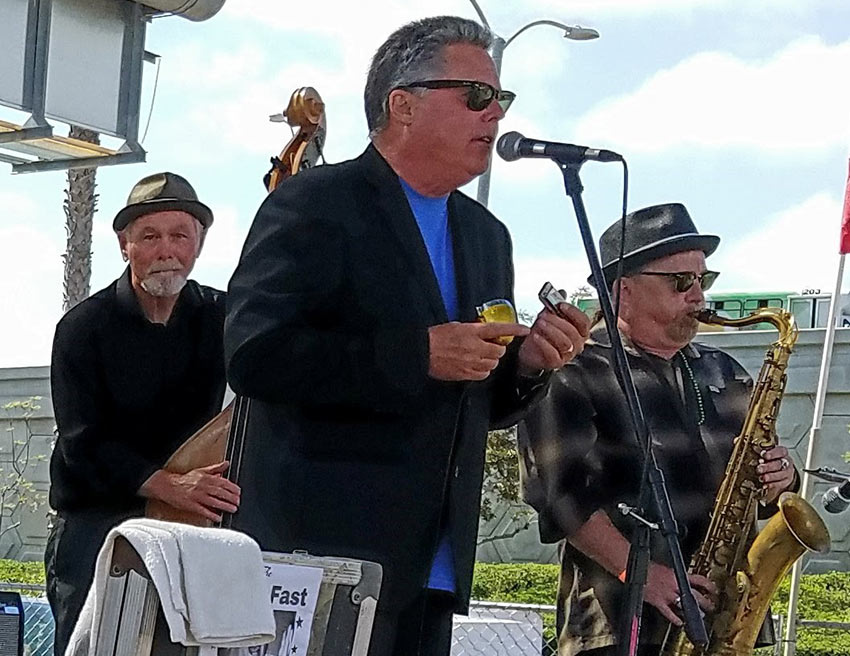
But music was always on your radar. “Pretty much. With my good friend, Mike, the first time I heard Sgt. Pepper’s was at his house. And he says, ‘when he was listening to Herman’s Hermit’s, I was listening to Cream and Black Sabbath.’” (laughing) “But anyway, I started playing sax around the 9th grade, and by the 10th grade I sorta’ joined a band. My friend, Reuben says ‘I got band practice.’ And I said, ‘I want to be in your band.’ He goes, ‘well come to practice.’ I go, ‘okay.’ I went to practice and I didn’t know what I was doing. I just stood in a corner while they played… and tried to find notes that sounded good to play along with them. The bass player gave me a ride home and I thought that was fun to just go and rehearse once. And he said, ‘You going to show up tomorrow?” I said, ‘Yeah!’ So from that point on I just showed up for rehearsals.” (laughing)
Seems to have worked out well for you? “Yeah! I’ve never actually been asked to join a band…I just sort of show up.” (laughing)
So that was your first band experience? “That was a great band!” Jonny says. “And at first we were doing a lot of Allman Brothers stuff and had two drummers. We were called ‘SkyDog’ Duane Allman’s nickname. And then we became more and more eclectic doing all kinds of other material and whittled it down to one drummer and we called ourselves, ‘Orbis Max.’ We were the shit in North County and Poway. We played all the big, big parties. We played some of the finest keggers that were ever thrown. It was a full-size band; we had three guitars, keyboards, singers ‘cause we didn’t care. We didn’t care about making money. We never did make money.
We played school dances and we borrowed some money off my mom to buy a real PA system and she gave us three years to pay it back. We paid it back in a year. We played at Camp Pendleton. We’d drive out there not knowing where they were going to send us, and it’s a huge place… and you’d be playing at a Quonset hut with about 80 men and one bar maid.”
Nice you were supporting the troops and cool that your mom encouraged you… “She got involved whether she wanted to, or not.” (laughing) “But she always supported my musical endeavors.”
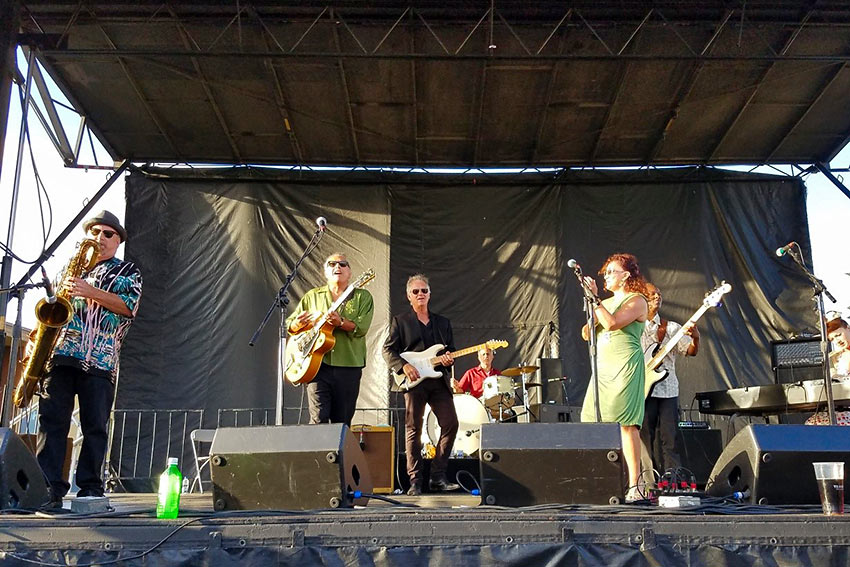
Can you talk about your ability to adapt your style of play? “Being in ‘Orbis Max’ helped me learn how to adapt, we were super eclectic and we played everything from jazz to rock and contemporary Top 40. Some blues, I mean we thought we could play blues. We weren’t really real blues players. Another thing that really helped me out with those guys; from day one they would record. They would record live gigs; we’d turn our band houses into a recording studio and recorded originals. I was thrown into that whole recording scene which is completely different from playing live.”
Most call that honing your chops or higher education. “Later, when recording I was very familiar with the process and for the most part wasn’t nervous at all. There were a couple of times when I was a little nervous. Doing the Solomon Burke sessions was a high profile deal.”
Who were some of your earliest influences in blues? “I would have to say the Rolling Stones, only I didn’t know it was the blues at the time. I didn’t really know much about the blues until I joined the King Biscuit Blues band. In February 1980, I was 22 years old and they had a steady gig down at the Mandolin Wind on University and 3rd. They played every Thursday, Friday and Saturday which is unheard of in today’s world.” (Just as Jonny says the late blues harp player Ken Schoppmeyer’s name, his phone begins to ring. Remember his ringtone is a wailing solo harmonica.)
Jonny’s eyes are now wider as he says, “I say the name Ken Schoppmeyer and the harmonica goes off on my phone. That’s weird… talk about spooky shit. (laughing) But Ken had a huge, huge, huge blues record collection and he told me to come over to his house and I brought a bunch of blank cassette tapes and just recorded King Curtis, and all these sax players I’d never heard of before and he turned me on to whole bunch of good music. Then I had to learn, I don’t know, like 40 songs in two weeks to start playing with those guys. And that ran through almost all of 1987. Right when I get in the band, we’re gonna’ record a record and I’m going, ‘Oh my God! I’m not really ready for this.’ But the next thing you know, we’re opening up for Albert King and B.B. King and Muddy Waters and Buddy Guy and Junior Wells. So, I got to meet all these guys and take a picture. For a green, 22-year old meeting B.B. King was like meeting Babe Ruth or something. I was definitely star- struck… meeting ALL those guys! Especially the first time and they were all, nothing but nice. B.B. was just the nicest guy. I was so tongue-tied and the only thing I could say to him, he had this giant, glob of gold on his finger, and I said, ‘Nice ring, B.B.!’” (laughing) “But the King Biscuit Blues band is where I definitely cut my teeth and learned a lot about life in general!”
How about Jazz influences? “Rahsaan Roland Kirk, Stanley Turrentine, Charlie Parker, I mean there’s so many.” And what was your take away from them? “With Jump Blues and King Curtis what I noticed was and especially with the sax players, they blurred the line between jazz and blues. Is this jazz, is this blues, is it jazzy-blues or bluesy-jazz? I don’t know, but it was good. I think with the saxophone, it’s so associated with jazz so people come up and go ‘you guys play some great Jazz.’ Well, we’re a blues band.”
You must have a pretty large R&B catalog, did you mine that genre? “A lot of Stax stuff, Sam and Dave and Otis Redding. When I left King Biscuit, the band sort of imploded one night. You know with bands; that happens. And everybody quit the group on the 3rd break just before the last set. (laughing) “I formed a little group with Eric Lieberman eventually, but before that I was in all-black Soul band from the Bay Area called C.P. Love and the Southbound Transit Band. Right after King Biscuit, in late 1987 and into 1988. They would fly me up to the Bay Area and I’d do gigs up there. And we went to Telluride, Colorado. These guys were from New Orleans and they’d never driven in the snow before. We’re driving on that road from Silverton to Telluride in a van pulling a trailer. Which was fine going up, but on the way down it was snowing like no tomorrow and we were just sliding down that mountain. Nobody said a word, we were just scared shitless. But they treated me like family, they were nothing but nice to me.”
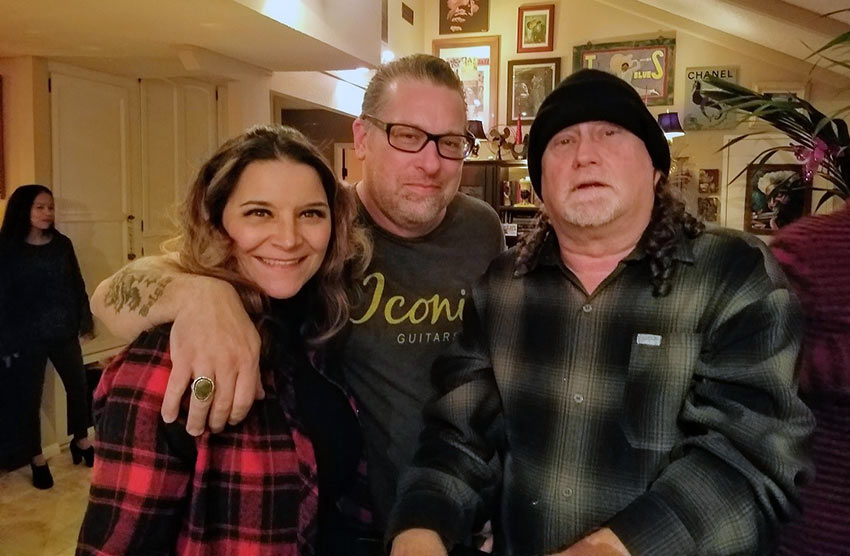
“After that I was just bouncing around, freelancing and playing with anybody I could. I moved into an apartment in Oceanside, so I was taking any gigs I could to pay the rent. I would play with the Mudsharks and Scottie Blinn. And with Eric and the Rhumboogies and we played every Tuesday night at Winston’s in Ocean Beach. I would get my horn player friends to come down and sit in. Sometimes we would have 3, 4, 5 or 6 horns and it was just organized chaos, with an emphasis on chaos. You’ve got to be somewhat organized and play together unless you’re Sun Ra, you know?”
Did you listen to Sun Ra? “Yeah! And I listen to a lot of Zappa, too. When I was locked in the blues closet, I didn’t make that a selling point. And I would go see him when I could. I’m still a huge Zappa fan.”
What was your first tour experience? “In 1990, I went out with Mitch Woods and his Rocket 88s from the Bay Area. That was my first real experience with touring, six weeks all across the country. I was touring with Mitch and backing up Earl King. I backed up Earl King several times and he was another guy who was just phenomenal. He wrote ‘Let the Good Times Roll.’ ‘People see me, but they just don’t know.’ Not the one by the Cars.” (laughing) “Just watching him tune his guitar was a musical experience. He would have his guitar tuned to these really weird tunings and that’s how he got some of those cools leads he would do.”
Gary Primich? “Oh My God! Oh My God! You know that session just happened to coincide with the Rodney King/L.A. Riots! And these guys (laughing) had never been to California, they came out from Texas and it was a Wednesday, Thursday, Friday session. Wednesday is when they were beating up people, they took Reginald Denny out of the truck and just about killed him. Thursday was loot, scoot and shoot day and we saw so much shit, so many fires and people with shopping carts full of stuff. A refrigerator in the back seat of a Cadillac with the convertible top down, people pushing big screen TV’s in those little red wagons… I’m telling you, we got the most done in the shortest amount of time you can imagine. We almost did that record in about six hours. They’d get on the talkback and go, ‘Fellas that sounded good, we don’t need to listen to it, trust me. Let’s move on to the next song!’ You really didn’t know there was a riot going on until you went to the bathroom, this tiny little window, you could hear sirens and helicopters and stuff. They had a curfew that day and we had to get out before it got dark and we were all fine with that.”
The title of the album was ‘My Pleasure.’
Tell us about the Pleasure Barons? “From ‘89 to ’93, I did two spectacular tours with the ‘Pleasure Barons.’ Oh My God it was Country Dick, Mojo Nixon, Dave Alvin, Joey Harris, Juke Logan… and we all wore tuxedoes. Country Dick was doing Tom Jones songs two octaves below Tom Jones. It was so much fun. And so funny, during rehearsals we were laughing so hard learning this stuff and then we did it again in ’93. The album was recorded in ’89, I believe. It says ‘Live in Las Vegas’ but it was actually recorded in the Coach House in San Juan Capistrano.” (laughing) “In ’93 we had a tour bus that used to belong to John Denver and it was a really nice bus. And we had John Doe and Rosie Flores and Katie Moffett and it was a much more polished show. We had a bar on stage; it was when the swing revival and the martini revival was going, so if you weren’t playing on a particular song, you’d be making martini’s for the guys. We only did two tours and then Dick died in ’95.”
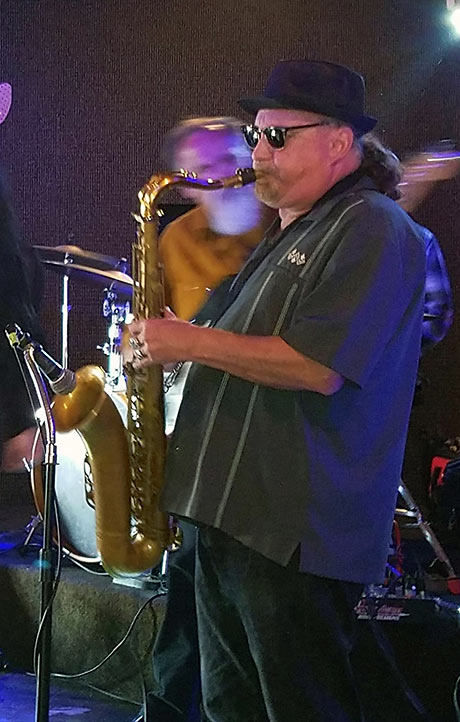
Country Dick Montana was larger than life… “I don’t know if you knew about Dick and the Beat Farmers, but he was always getting doused with beer from the audience or from himself, you know? He went after someone one time who was throwing excessive amounts of beer on him and he jumped off the stage and grabbed a guy…and started spanking him! Little did he know it was wrong guy?” (laughing) “He started spanking him.” (laughing) “He put him over his knee.” What did the band do? “We were laughing, ‘oh, there goes Dick! Just keep playing you guys.’”
Kid Ramos ‘Two Hands, One Heart.’ “Oh that was a fun session. He (Ramos) decided to make an album with a cavalcade of guitar players. So, it was two days of a revolving door of all these great guitar players. Duke Robillard, Junior Watson and ‘Gatemouth’ Brown. We had three saxophones and a trumpet, Jeff Turmes being one of them, who’s Mavis’ bass player but he’s also a great sax player. He wrote out some arrangements but when Gatemouth came in, he wanted to change up everything. We had everything worked out with the solo’s but okay…we’re going to have to make some adjustments here. He’d say let’s do it this way and when the tape would run, he’d do it a different way. It kept going on and on… till Kid goes, ‘why don’t we do it like the record?’ Gatemouth goes, ‘why do you want to do that for?’ And Kid goes, ‘I don’t know, it’s a T-Bone song.’ Jonny laughs as he says, ‘Gatemouth goes, ‘I don’t care if it’s a Jesus Christ song; we’re gonna’ do it my way!’” (laughing) “Larry Taylor and I were looking at each other and laughing.”
Can we talk about how your solo projects came together, let’s start with your first CD called Jonny Viau and Friends… Sideman? “I just got all my friends to come in and play a song or two and it was so much fun. I had it in the can in ’96, but then I ran out of money so it sat and didn’t get released until about 2000. Then, I put together my own band, Jonny Viau and the Blues All Stars at the insistence of Larry Matranga the owner of Patrick’s. Because I was playing down at Patrick’s with so many different bands I coulda’ put a cot in the back room and slept there. The band I put together was called the All Stars so it could have anybody I wanted in it. It didn’t have to be a set lineup. At any given time it would be Marcus Bashore, Mike Cherry, Dave Pruitt, Billy Seward, Adrian Demain, Troy Jennings, a piano player named Neil Walkup and then we did the Live at Dizzy’s CD in 2002.
Rod Piazza pops up regularly in your discography? “Yeah, I did about four or five albums with Rod. He was cool to work with and in the studio he really brings out the best in his players without being an asshole, you know? With Rod, you wanted to be as good as you could. I traveled a lot with Rod around the United States; we did the Santa Cruz Blues Festival and another festival in West Virginia.”
How did you guys meet? “Well, I met Rod Piazza and James Harman at the Mandolin Wind where I used to play with King Biscuit. I’d see them at the Belly Up and sit in with them. I guess Allen Ortiz introduced me to Rod; he also introduced me to the King Biscuit guys. He was pretty instrumental in me getting my foot in the door with those guys.”
You mentioned James Harman. “I love James. He was just the coolest from day one when he had Hollywood Fats and Kid Ramos in the same band!? With Willie J. Campbell on bass and Steven Hodges on drums… C’mon! They were definitely ‘Those Dangerous Gentlemen’s.’ We opened up for them at the Belly Up and go see them at the Mandolin Wind. And I got to record with them.”
Talk a little about Candye Kane. “Well, I recorded with her for several years before I was actually asked to join the band. I joined her band when that big swing revival in the mid-90s was resurging. She had me and Robbie Smith on trumpet and we did that for a couple of years. Candye was the first one to take me to Europe. She and I had a falling out, we kissed and made up and I went over to Europe again with her and recorded on ‘Super Hero.’ But I am so glad we made up and didn’t leave that tension and bullshit we went through, we put it behind us.”
How did you become a Blues Beatle? “Scottie Blinn gave my information to the guitar player who contacted me and said their sax player wasn’t able to come to Denmark, so last year I went to Denmark for a month and played with those guys. They play Beatles songs in a blues vein and they’re all from Brazil and speak Portuguese. So, I’m with these guys who just speak Portuguese and Danish and very little English. I did another tour with them on the East Coast and it was Fun. Nice guys and good players. Funny. You’ve got to have a sense of humor, you gotta’ laugh. They liked steak and cake and Coca Cola.” (laughing) “Every time we’d go someplace, they had to eat steak.”
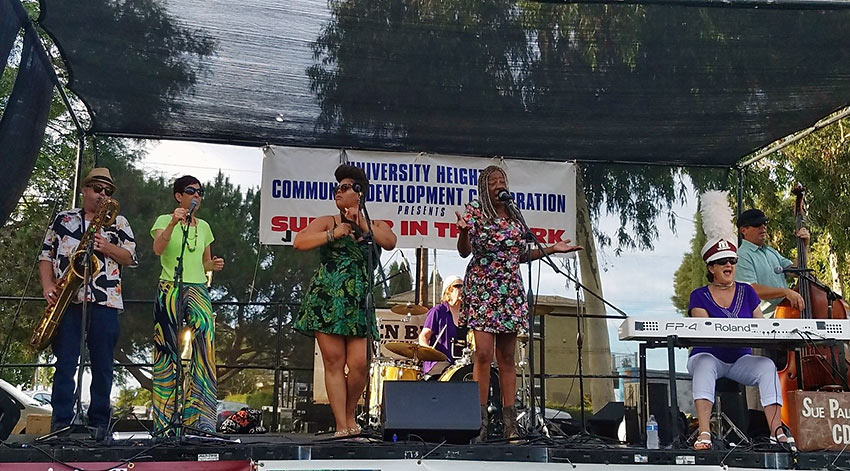
Sue Palmer. “She and her band are the greatest people. I’ve been with them almost twenty years now; I think, where we’ve had the same line-up. We do these jazz festivals, blues festivals, concerts in the park…she does so many styles; she can cater to the event. We do the San Diego Blues Festival; we do more R&B and Blues. If we do the San Diego Traditional Jazz Festival, well you know.”
Sue’s band can also range in size. “She can do a solo, 2, 3, 4, 5, 6, 7 or 8 pieces. That’s a big band, and when you add both singers, Sharifah and Dheeja…”
Speaking of Sharifah… “Sharifah is Dheeja’s daughter and Sharifah’s been coming and singing with Sue for a long time, probably fifteen years, since she was very young. She would just nail me; kill me when she would do the Margie Hendrix part of Ray Charles’ ‘Night Time is the Right Time.’ ‘Baby!’ Oh My God! Something would just come over me. So I said, I want to put a band behind you one of these days. And kept saying it and saying it until finally, let’s do it. We did some rehearsals up at my house, found the best players I could find… Marty Dodson, Troy Sandow, Steve Wilcox, Sharifah and me. Small band, big sound. We learned all these obscure Soul and R&B tunes, everybody contributed songs and we had more than enough material to do a CD. We went to Nathan James’ Sacred Cat studio and we cut 16 songs in two days. You have the basic studio room where everybody’s playing and you have the other room where singers and horn players can play and be isolated and do stuff over. I asked Sharifah, ‘Why don’t you go in to the other room in case you’re not happy with your vocal? She says, ‘No, I want to be in here with you guys!’ A lot of the tracks she cut ‘live’ with us all at the same time. We never did more than three takes on any song.”
The result was the CD ‘Sharifah and the Good Thing.’ “We have a different rhythm section now, but she’s still playing and kicking ass… and taking names!”
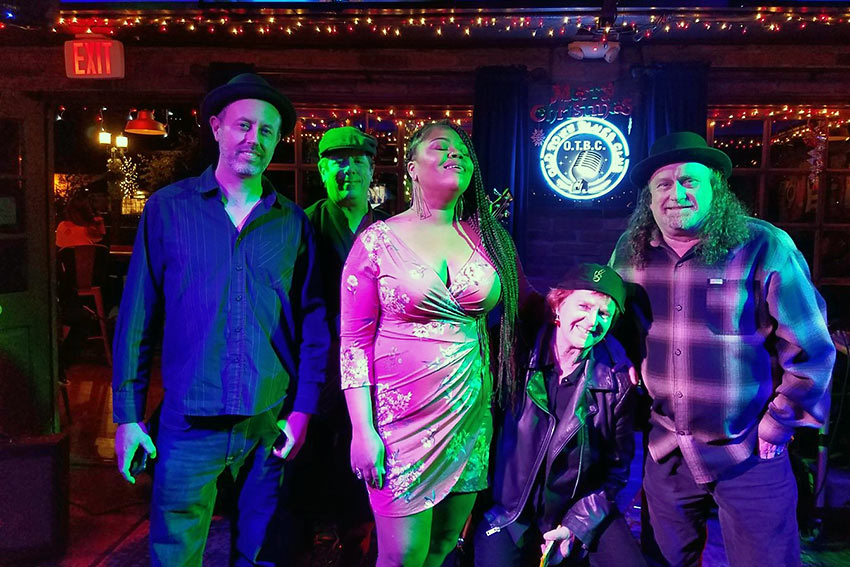
For you personally, any wow moments along the way? “I was able to go and record at Capitol Records. It was probably one of the highlights of my recording career even though they just brought me in to play about 16 bars of solo. They had a whole, full on horn section of these session players and I said, ‘Am I going to have to play with those guys?’ They said, “No man, you just have to play the solo, that’s all.” You mean I’m getting 300 bucks to play 16 bars? Okay! Capitol Records here we are!” Jonny shakes his head. “That was an amazing place, all the way to the ceiling… gold records. Abbey Road, real serious records, you know?”
Last call, any wisdom to share from your journey, so far? “What I’ve learned through the music, by experimenting with different notes and rhythm’s is that people don’t understand it, when you’re playing over their heads. It’s why people don’t gravitate toward jazz. Charles McPherson summed it up perfectly when he said, ‘Jazz is like Shakespeare, everybody appreciates it, but nobody wants to read it.’” (laughing) “I’ve learned playing the simpler horn parts, friendly voicing’s that aren’t super jazzy and my solos too, I don’t try to play a million notes or try to sound like Charlie Parker. I just want to play what people like and can relate to. Keep it relatively simple, but fun… fun for me! It’s fun to pick the perfect note for the perfect moment.”
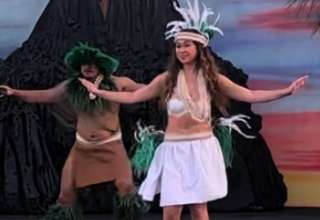
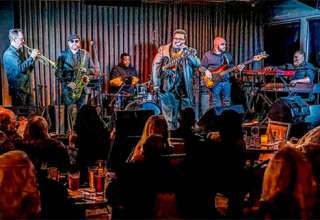
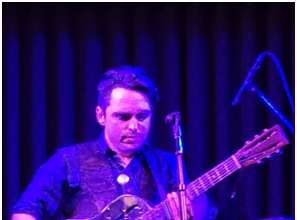
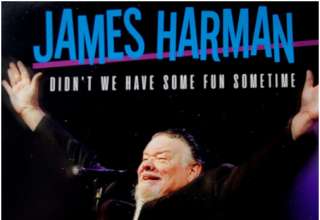
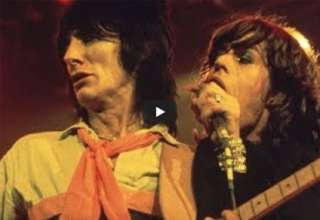
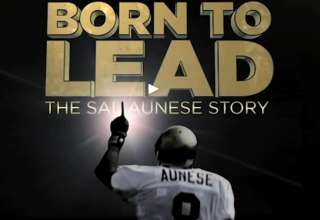
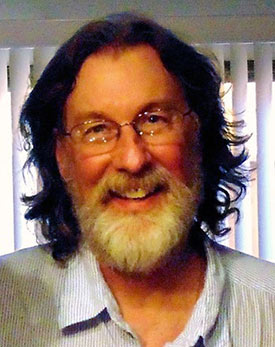
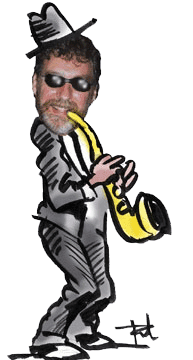 As a Defense Information-trained broadcast journalist and photographer, the road has taken him from the Far East Network in Tokyo, through the jungles of Central America, across the airwaves of Southern Europe to his final posting as the Chief of Radio and Television Sports for the global facilities of the American Forces Network. From on-air and studio production work in Hollywood to aerial photography from the open door of a Huey helicopter, Mr. Mattox has a wealth of experience in broadcast journalism. During his military career, he shot classified footage of Honduran air strips and landing zones expressly for Senate Sub-Committee hearings. He wrote, voiced and produced the AFRTS music series, 'The Straight, Natural Blues' portions of which now reside in the Library of Congress. He has written blues biographical features and taken photographs that have been published in multiple national and international magazines.
As a Defense Information-trained broadcast journalist and photographer, the road has taken him from the Far East Network in Tokyo, through the jungles of Central America, across the airwaves of Southern Europe to his final posting as the Chief of Radio and Television Sports for the global facilities of the American Forces Network. From on-air and studio production work in Hollywood to aerial photography from the open door of a Huey helicopter, Mr. Mattox has a wealth of experience in broadcast journalism. During his military career, he shot classified footage of Honduran air strips and landing zones expressly for Senate Sub-Committee hearings. He wrote, voiced and produced the AFRTS music series, 'The Straight, Natural Blues' portions of which now reside in the Library of Congress. He has written blues biographical features and taken photographs that have been published in multiple national and international magazines.






Curt Brown
December 3, 2022 at 9:14 am
Curt’s Blues blog. Something you may want to check out. Thank you.